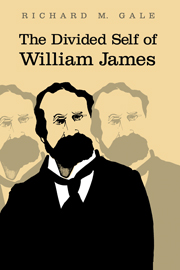John Dewey's Naturalization of William James
Published online by Cambridge University Press: 05 June 2012
Summary
In the Introduction it was pointed out that all of the major philosophical movements of the twentieth century had their roots in James's philosophy, a tribute to the richness and originality of his ideas. Many devotees of these various movements, however, could not resist the temptation to coopt James for their own cause by giving anachronistic interpretations of his philosophy that made him look like a cardcarrying member of their own pet movement. Most prominent of these self-serving portrayals of James were the naturalistic interpretations, in which all the mystical and spiritual aspects of James's philosophy, which it has been the purpose of this book to bring into bold relief, were neglected. The original and by far most influential of these distorting naturalistic interpreters was John Dewey. This appendix will attempt to counter the naturalistic interpretations of James by attacking them at their source in Dewey's accounts of James's philosophy.
It will come as a shock to many to be told that Dewey gave such selfserving anachronistic interpretations of William James, for if Dewey didn't get James right, who did. After all, he was both James's friend and fellow pragmatist, helping him to man the ramparts against the assaults of those “foreigners” who claimed that anyone who required that ideas have “cash value” was either a pimp, a captain of industry, or both. Furthermore, William James was John Dewey's philosophical hero, because his “biological psychology” of the 1890 The Principles of Psychology had led Dewey out of his bondage in the dark land of Hegel and into the sunshine of the wonderful land of naturalism.
- Type
- Chapter
- Information
- The Divided Self of William James , pp. 335 - 352Publisher: Cambridge University PressPrint publication year: 1999



